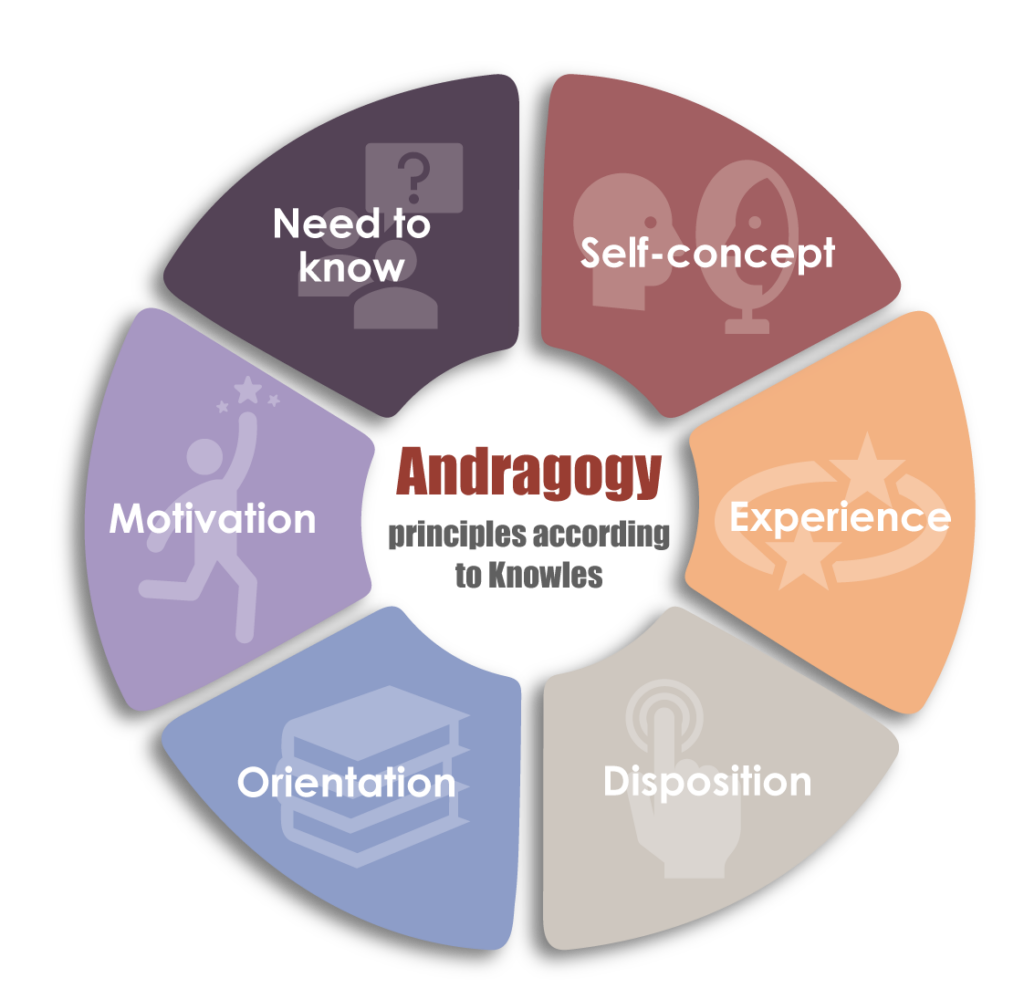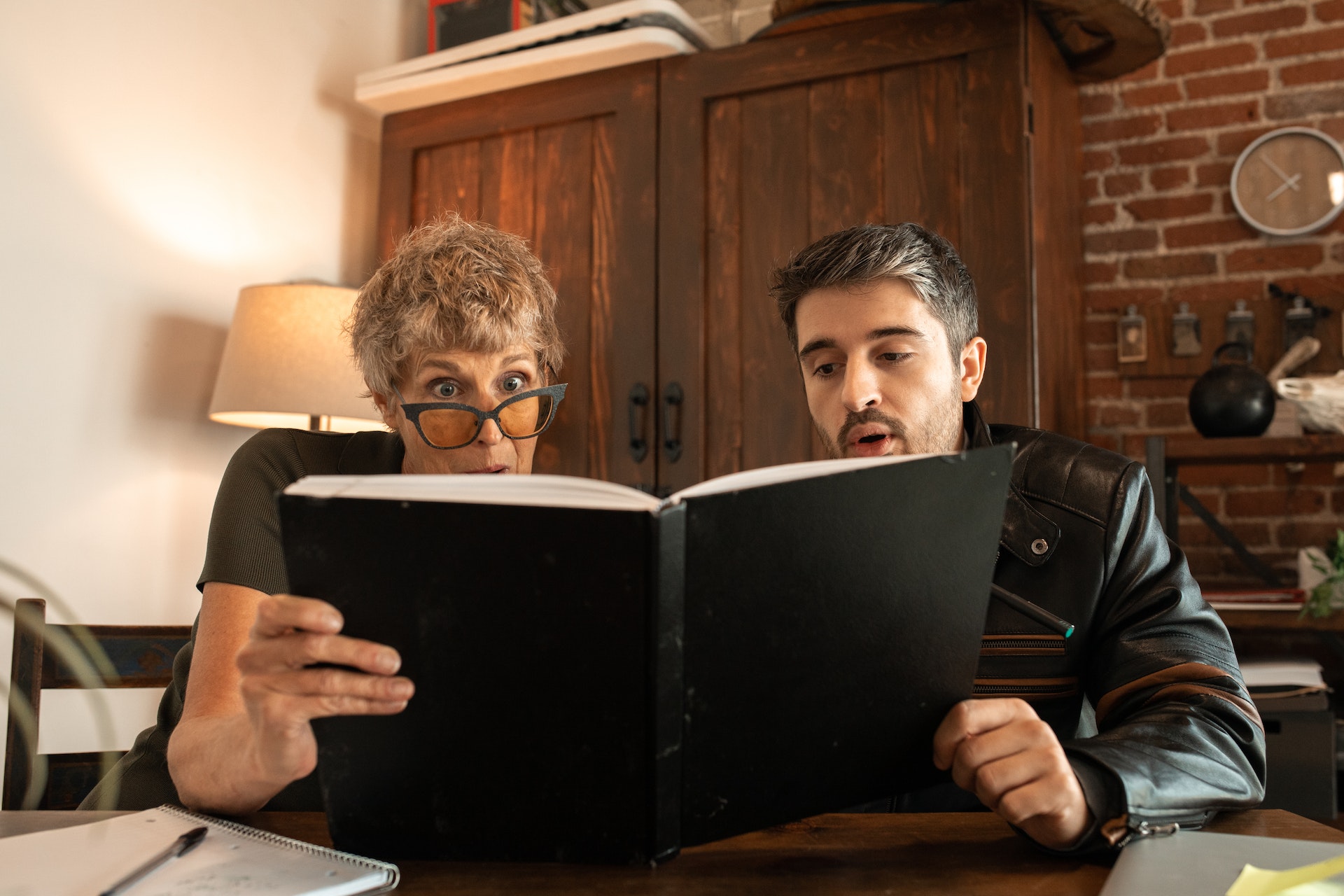As we go through new stages throughout our lives, our knowledge grows. It happens because of the experiences added to our library of learnings over time. Therefore, as we grow into adulthood, how we learn also is transformed. Andragogy refers to the method, strategy, and learning principles during this phase of life. These methods and strategies mainly occur in the contexts of higher education, corporate training, and online classes.
Andragogy v. Pedagogy
Previously people believed that children and adults received education the same way. Still, while both approaches to teaching have the same objective, they are not equal since their audiences are different. From semantics, there are significant differences. Andragogy from Greek means “to lead adults,” while pedagogy refers to “to lead children.”
Because the mental capacities of infants and adults are different, they learn differently, and therefore, the teaching strategy differs. In pedagogy, a child depends on the knowledge transmitted by the teacher without precisely knowing when to apply this information. However, in andragogy, the most effective learning method addresses know-how rather than memorization, which pedagogy broadly employs. Also, for adults, the teacher becomes a facilitator. The students and facilitator are on the same level during the learning process; the students look more for a guide than an authority to tell them what to do. Learning is student-oriented rather than teacher-oriented, as in pedagogy.
Knowles’ theory
Malcolm Knowes is one of the biggest influencers on andragogy; his studies in the area have been cornerstones for work in adult learning. His text, The Modern Practice of Adult Education: From Pedagogy to Andragogy, offers guidance for implementing best practices in this field and considers the following assumptions to understand the effective teaching of adults:
- The need to know: At this stage, people need to know the why and for what behind learning.
- Self-concept: Being now a self-directed person, the adult takes a more active role during their education, from planning to evaluation.
- Experience: As mature people, adults already have a great diversity of experiences (including mistakes and failures), which are invaluable sources of information to support their new learning.
- Disposition: The person’s disposition inclines towards those learnings that will serve them to face the challenges of daily life (this includes the workplace, family, etc.).
- Learning orientation: Andragogy focuses on problem-solving rather than learning theory. Here, people seek to find solutions.
- Motivation: Refers to the intrinsic motivation of the person to improve.

Principles of andragogy according to Knowles, image by Mariana Sofía Jiménez (2023)
Promoting adult learning within the classroom
Based on Knowles’ principles, some strategies that encourage learning within the adult classroom are as follows:
- Recognize the different ways of learning: Some people learn visually (through videos, writing on the board, etc.), auditorily (through talking, sounds), or tactically (touching or doing something physical to learn, such as helping the teacher in class).
- Be flexible: As the class progresses, the topic may deviate, so it is best not to follow a strict plan as long as you do not forget the central topic of the class.
- Recognize everyone’s experiences: Dialogue among students can be a valuable source of information, so encouraging dialogue and collaboration to enrich the knowledge of the whole group is good practice.
- Keep classes relevant to the group’s age so students can identify with the examples and relate what they learn to their daily lives.
However, not all principles apply to all people; how adults learn cannot be generalized because of their individual learning preferences. Additionally, some cultural or local differences interfere with tenets of andragogy; for example, countries where teachers’ authority cannot be removed or the lack of resources, opportunities, and infrastructure that impede implementing these methods. In these cases, educators must adjust the teaching strategies depending on the audience.
Andragogy is a significant branch of education involving students’ experiences, autonomy, and motivations. Education does not end with a diploma; it is always continuous, non-linear, and infinite. Understanding this type of learning is very valuable to transmitting it in the best way to all people at different stages of their lives; in other words, lifelong learning.
Translation by Daniel Wetta
This article from Observatory of the Institute for the Future of Education may be shared under the terms of the license CC BY-NC-SA 4.0 
)
)


)